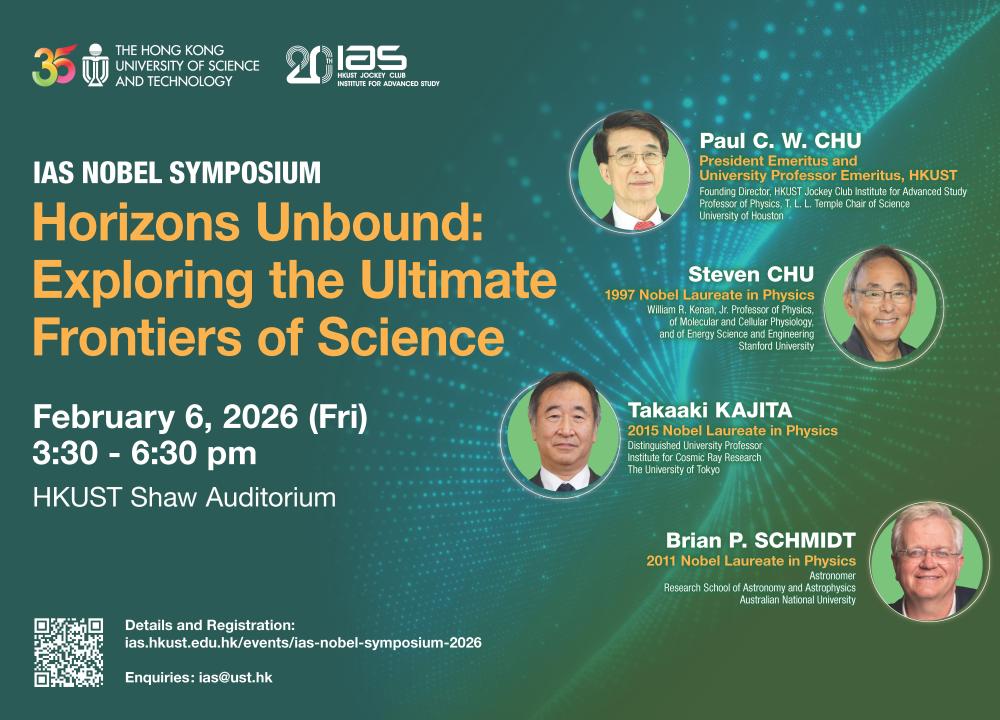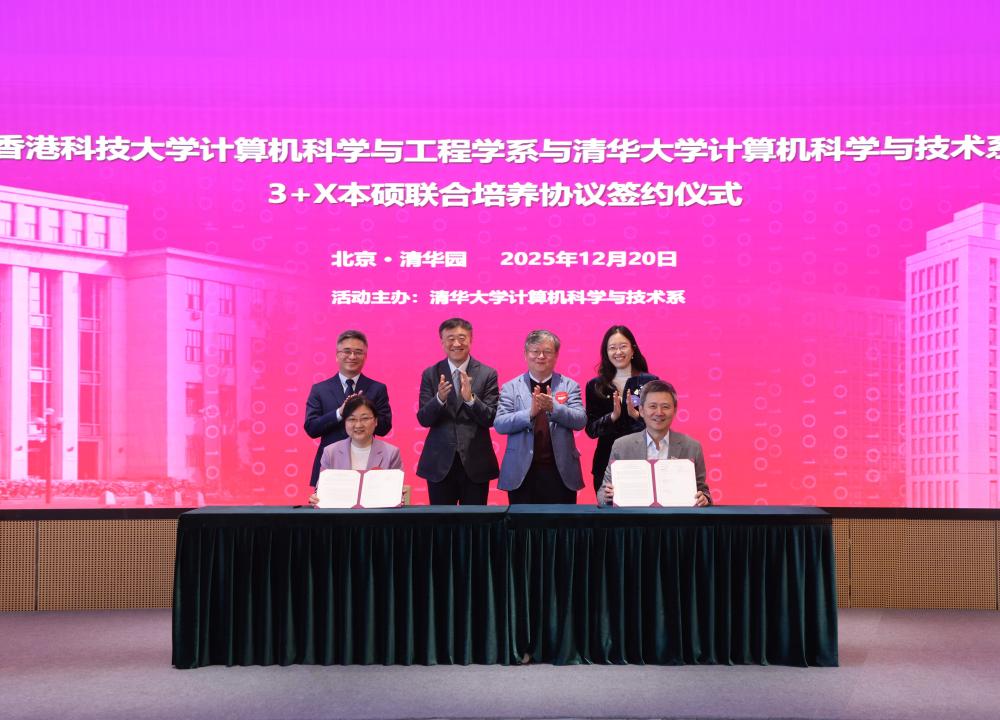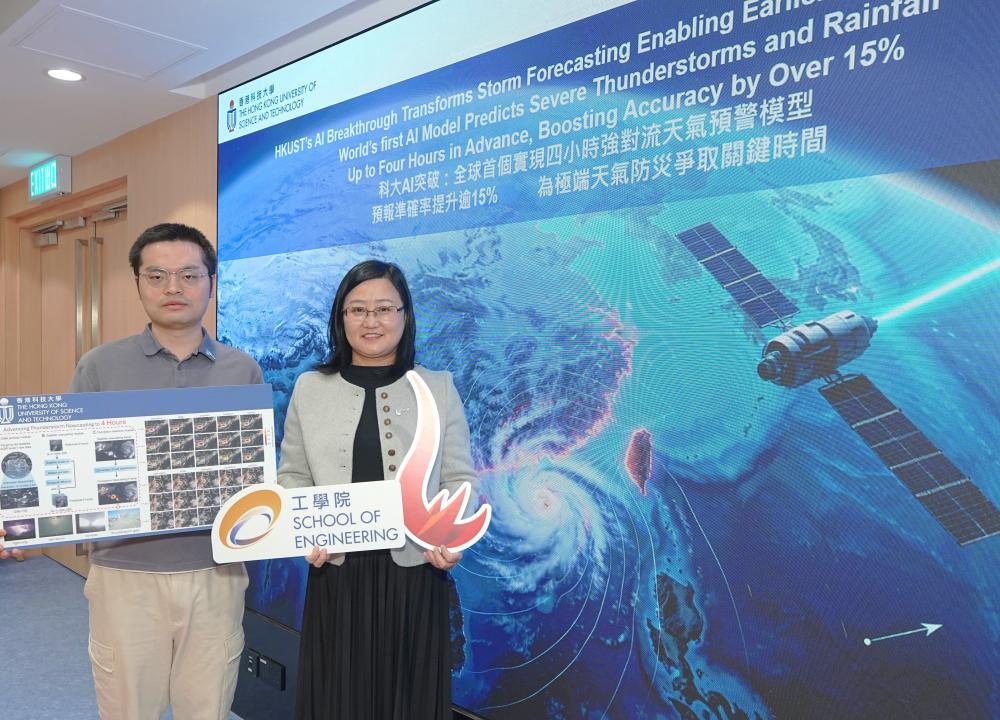HKUST Chemists Innovate in the Synthesis of Chiral Bridged Polycyclic Compounds
A Hong Kong University of Science and Technology (HKUST) research team led by Prof. SUN Jianwei and Prof. LIN Zhenyang from the Department of Chemistry has developed a catalytic enantioselective type II [5 + 2] cycloaddition method to address the challenges of synthesizing chiral bridged polycyclic structures, particularly those with a bridged seven-membered subunit. This innovative approach utilizes 3-oxidopyrylium ylides to create the desired complex shapes, paving the way for more applications in the rapid synthesis and diversification of other valuable complex molecules, including important natural products and drug molecules.
Chiral bridged polycyclic structures, particularly those bearing a bridged seven-membered subunit, represent a complex and intriguing molecular architecture found in many natural and biologically significant compounds. However, synthesizing these structures has posed substantial challenges for chemists.
Among the available methods, the intramolecular [5+2] cycloaddition of versatile dipolar molecules like 3-oxidopyrylium ylides stands out as one of the few efficient processes for accessing such molecular complexity. Notably, this research marks the first report of a catalytic enantioselective type II cycloaddition, a significant advancement given its potential for synthesizing diverse complex natural products.
The research team successfully addressed the formidable challenge of preventing the formation of strained, anti-Bredt cycloadducts bearing bridge-head double bonds while exerting enantiocontrol. They achieved this through non-covalent activation by a chiral acid catalysis, a novel approach compared to the traditional covalent activation methods. Remarkably, chiral phosphoric acids (CPAs) derived from the SPHENOL backbone, developed in their own laboratories, proved to be particularly effective in inducing enantioselectivity. The chiral acid catalyst not only promoted the rate-determining enolization step but also provided the necessary asymmetric induction for the formation of enantioselective C–C bonds, showcasing a dual functionality that enhances the overall efficiency of the cycloaddition process.
The protocol provides various functionalized and bridged carbocycles, which can serve as advanced intermediates in the synthesis of complex molecules. Some of these carbocycles are already core structures of important natural products and drug molecules. “Additionally, this protocol is expected to be applicable to other cycloadditions and would find more applications in the rapid synthesis and diversification of other useful complex molecules,” Prof. Sun said.
This research has been published in Nature Synthesis in May 2025.
About The Hong Kong University of Science and Technology
The Hong Kong University of Science and Technology (HKUST) (https://hkust.edu.hk/) is a world-class university that excels in driving innovative education, research excellence, and impactful knowledge transfer. With a holistic and interdisciplinary pedagogy approach, HKUST was ranked 3rd in the Times Higher Education’s Young University Rankings 2024, 19th Worldwide and No.1 in Hong Kong in Times Higher Education’s impact Rankings. Thirteen HKUST subjects were ranked among the world’s top 50 in the QS World University Rankings by Subject 2025, with “Data Science and Artificial Intelligence” holding the 17th place, maintaining its position as first in Hong Kong. Our graduates are highly competitive, consistently ranking among the world’s top 30 most sought-after employees. In terms of research and entrepreneurship, over 80% of our work was rated “Internationally excellent” or “world leading” in the latest Research Assessment Exercise 2020 of Hong Kong’s University Grants Committee. As of May 2025, HKUST members have founded over 1,800 active start-ups, including 10 Unicorns and 17 exits (IPO or M&A)










![Caption: A schematic of the catalytic enantioselective type II [5 + 2] cycloaddition method.](/sites/default/files/news/10829/0604%20CHEM.png)


